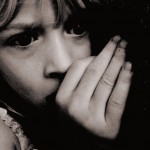The Anxiety-Free Child Program - Help Your Child With Anxiety Today
The Award Winning Anxiety-Free Child Program provides information and resources to help your child overcome their anxiety FAST. As Seen on TV!
Join Us Online
-
Separation Anxiety and Panic Disorder: What’s the Connection?
November 5, 2012 -
Therapy for Anxious Kids…At School?
November 22, 2013 -
The Parents Guide to Teaching Mindfulness to Children with Anxiety
January 14, 2013 -
How Does Separation Anxiety Affect Children?
August 5, 2012
-
How to Use Mindfulness to Reduce Anxiety for the Entire Family
December 7, 2020 -
How and Why to Savor Small Moments with Your Anxious Child
October 13, 2020 -
What to Do for School Anxiety during COVID-19
August 5, 2020 -
How Social Isolation Can Increase Anxiety, Depression in Children
June 3, 2020
Important Disclaimer
All material provided on this website is provided for informational or education purposes only. No content is intended to be a substitute for professional medical advice, diagnosis, or treatment. Consult your physician regarding the applicability of any opinions or recommendations with respect to your symptoms or medical condition. The author is not a therapist, psychologist, physician, or other mental health or medical professional. Customer names or locations may have been changed to preserve anonymity. Your individual results may vary and are influenced by many factors.
FAQ’S & CUSTOMER SERVICE
Our friendly customer service representatives are available Monday – Friday from 8AM to 3PM EST to answer any questions you have from our online help desk. Customer service inquires will be answered within 24 business hours. For the fastest answer to your question, please click here to view our FAQ’s. In the unlikely even that your question is not answered by our FAQ, you may submit a customer service request by clicking here.
Please contact customer service for returns processing.
Evolution 2 Media, Inc.
538 W 21st St #27517 Houston, Texas 77008-3642
1-800-256-9148














